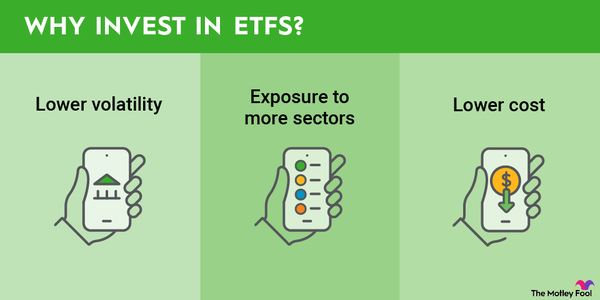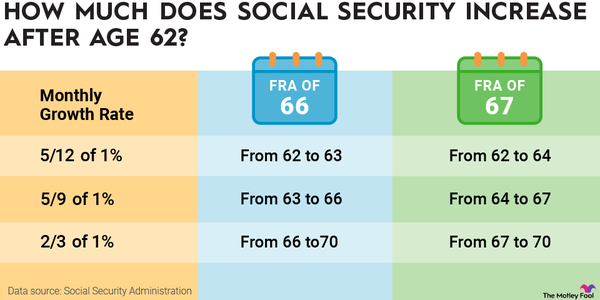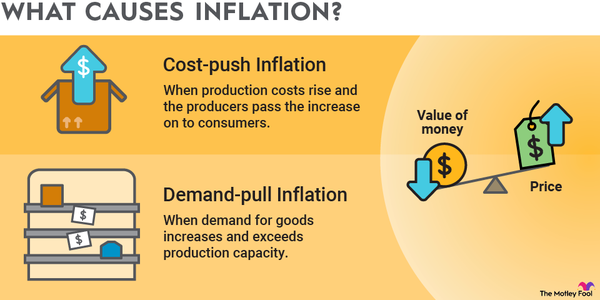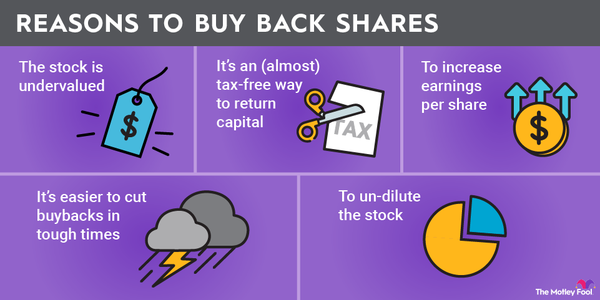Capital gains tax rates are an important consideration for every investor because you'll have to pay capital gains tax on stocks when you sell them. That's also true of other assets, as we'll see below. By understanding how these work at the federal and state levels, you can minimize your tax burden.
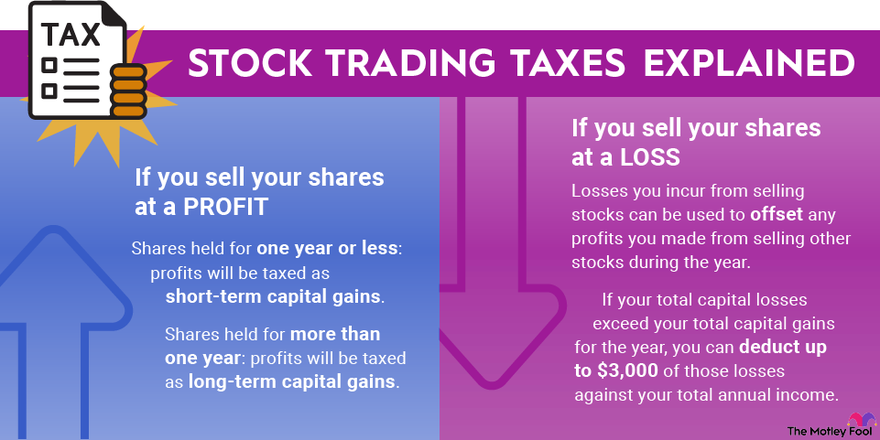
Capital gains taxes are also a hotly debated subject, and changes could be on the way. Some states are taking a closer look at starting capital gains taxes or raising their rates.
To provide the most recent info on capital gains taxes, we've collected data on long- and short-term capital gains tax rates, including from the IRS and in all 50 states.
What is capital gains tax?
What is capital gains tax?
Capital gains tax is the tax you pay after selling an asset that has increased in value. Assets subject to capital gains tax include stocks, real estate, and businesses. You pay capital gains tax on the profit you made from the sale.
Asset
For example, if you buy a stock for $100 and sell it for $150, you would pay capital gains tax on $50. Capital gains are an essential part of understanding how investing and taxes work.
There are exclusions for certain types of capital gains that can lower how much you pay in taxes. The home sale exclusion is one of the most common and allows you to save on taxes when selling a house. If you've owned and used your home as your main home for at least two out of five years prior to its date of sale, you can exclude up to $250,000 in capital gains if you're a single filer or up to $500,000 if you're filing jointly with your spouse.
What is short-term capital gains tax?
Short-term capital gains tax is what you pay on assets that you sell within a year. If you bought a share of Tesla (NASDAQ:TSLA) and sold it six months later, you would pay short-term capital gains tax. This type of capital gain is taxed as ordinary income.
What is long-term capital gains tax?
Long-term capital gains tax is what you pay on assets that you sell after more than a year. If you bought a share of Apple (NASDAQ:AAPL) in 1995 and sold it in 2020, you would pay long-term capital gains tax.
Tax rates are lower for long-term capital gains, which is why it's generally recommended to hold assets for at least a year to minimize your taxes.
2024 federal capital gains tax rates
2024 federal capital gains tax rates
Just like income tax, you'll pay a tiered tax rate on your capital gains. For example, a single person with a total short-term capital gain of $15,000 would pay 10% of $11,600 ($1,160), then 12% on the additional $3,400 ($408), for a total of $1,568.
Federal short-term capital gains tax rates for the 2024 tax year
Federal tax rates on short-term capital gains are equal to income tax rates.
| TAX RATE | SINGLE | MARRIED FILING JOINTLY | MARRIED FILING SEPARATELY | HEAD OF HOUSEHOLD |
|---|---|---|---|---|
| 10% | Up to $11,600 | Up to $23,200 | Up to $11,600 | Up to $16,550 |
| 12% | $11,601 to $47,150 | $23,201 to $94,300 | $11,601 to $47,150 | $16,551 to $63,100 |
| 22% | $47,151 to $100,525 | $94,301 to $201,050 | $47,151 to $100,525 | $63,101 to $100,500 |
| 24% | $100,526 to $191,950 | $201,051 to $383,900 | $100,526 to $191,950 | $100,501 to $191,950 |
| 32% | $191,951 to $243,725 | $383,901 to $487,450 | $191,951 to $243,725 | $191,951 to $243,700 |
| 35% | $243,726 to $609,350 | $487,451 to $731,200 | $243,726 to $365,600 | $243,701 to $609,350 |
| 37% | Over $609,350 | Over $731,200 | Over $365,600 | Over $609,350 |
Federal long-term capital gains tax rates for the 2024 tax year
| TAX RATE | SINGLE | MARRIED FILING JOINTLY | MARRIED FILING SEPARATELY | HEAD OF HOUSEHOLD |
|---|---|---|---|---|
| 0% | Up to $47,025 | Up to $94,050 | Up to $47,025 | Up to $63,000 |
| 15% | $47,026 to $518,900 | $94,051 to $583,750 | $47,026 to $291,850 | $63,001 to $551,350 |
| 20% | Over $518,900 | Over $583,750 | Over $291,850 | Over $551,350 |
State capital gains tax rates
State capital gains tax rates
Each state has its own method of taxing capital gains. Most states tax capital gains as income. In states that do this, the state income tax applies to long- and short-term capital gains.
There are also plenty of states that handle capital gains differently. Some allow taxpayers to deduct a certain amount of capital gains. Others don't tax income or capital gains at all.
The sections below cover every state's tax laws for capital gains. They also include state income taxes for states that tax capital gains as income. Keep in mind that many states have special rules that apply to the sale of certain assets, such as exclusions for collectibles purchased before a certain year. Not every rule for every situation is included. Taxpayers should always review the capital gains rules in their state so they know about any relevant exceptions.
Alabama
Alabama taxes capital gains as income, and both are taxed at the same rates.
Alabama capital gains tax rates
| Tax Rate | Single | Married filing jointly | Married filing separately | Head of household |
|---|---|---|---|---|
| 2% | Up to $500 | Up to $1,000 | Up to $500 | Up to $500 |
| 4% | $501 to $3,000 | $1,001 to $6,000 | $501 to $3,000 | $501 to $3,000 |
| 5% | Over $3,000 | Over $6,000 | Over $3,000 | Over $3,000 |
Alaska
Alaska does not tax personal income or capital gains.
Arizona
Arizona taxes capital gains as income, and both are taxed at the same rate of 2.5%.
Arkansas
In Arkansas, 50% of long-term capital gains are treated as income, and both are taxed at the same rates. All short-term capital gains are treated as income, and 100% of these gains are taxed. Tax rates are the same for every filing status.
Arkansas capital gains tax rates
| TAX RATE | NET INCOME LESS THAN OR EQUAL TO $89,600 |
|---|---|
| 0.0% | $0 to $5,299 |
| 2.0% | $5,300 to $10,599 |
| 3.0% | $10,600 to $15,099 |
| 3.4% | $15,100 to $24,299 |
| 3.9% | $24,300 to $89,600 |
| TAX RATE | NET INCOME GREATER THAN $89,600 |
|---|---|
| 2.0% | $0 to $4,500 |
| 3.9% | $4,501 and over |
California
California taxes capital gains as income, and both are taxed at the same rates.
California capital gains tax rates
| Tax rate | Single or married filing separately | Married filing jointly | Head of household |
|---|---|---|---|
| 1% | $0 to $10,412 | $0 to $20,824 | $0 to $20,839 |
| 2% | $10,413 to $24,684 | $20,825 to $49,368 | $20,840 to $49,371 |
| 4% | $24,685 to $38,959 | $49,369 to $77,918 | $49,372 to $63,644 |
| 6% | $38,960 to $54,081 | $77,919 to $108,162 | $63,645 to $78,765 |
| 8% | $54,082 to $68,350 | $108,163 to $136,700 | $78,766 to $93,037 |
| 9.3% | $68,351 to $349,137 | $136,701 to $698,274 | $93,038 to $474,824 |
| 10.3% | $349,138 to $418,961 | $698,275 to $837,922 | $474,825 to $569,790 |
| 11.3% | $418,962 to $698,271 | $837,923 to $1,396,542 | $569,791 to $949,649 |
| 12.3% | Over $698,271 | Over 1,396,542 | Over $949,649 |
Colorado
Colorado taxes capital gains as income, and both are taxed at the same rates. The state income and capital gains tax is a flat rate of 4.4%. That has been temporarily reduced to 4.25% for the 2024 tax year. This income tax reduction can also be reactivated annually for 2025 to 2035 if certain revenue triggers are met.
Connecticut
Connecticut taxes capital gains as income, and both are taxed at the same rates.
| TAX RATE | SINGLE OR MARRIED FILING SEPARATELY | MARRIED FILING JOINTLY | HEAD OF HOUSEHOLD |
|---|---|---|---|
| 2.0% | $0 to $10,000 | $0 to $20,000 | $0 to $16,000 |
| 4.5% | $10,001 to $50,000 | $20,001 to $100,000 | $16,001 to $80,000 |
| 5.5% | $50,001 to $100,000 | $100,001 to $200,000 | $80,001 to $160,000 |
| 6.0% | $100,001 to $200,000 | $200,001 to $400,000 | $160,001 to $320,000 |
| 6.5% | $200,001 to $250,000 | $400,001, to $500,000 | $320,001 to $400,000 |
| 6.9% | $250,001 to $500,000 | $500,001 to $1,000,000 | $400,001 to $800,000 |
| 6.99% | Over $500,000 | Over $1,000,000 | Over $800,000 |
Delaware
Delaware taxes capital gains as income, and both are taxed at the same rates. Tax rates are the same for every filing status.
Delaware capital gains tax rates
| TAX RATE | INCOME |
|---|---|
| 0.0% | $0 to $1,999 |
| 2.2% | $2,000 to $4,999 |
| 3.9% | $5,000 to $9,999 |
| 4.8% | $10,000 to $19,999 |
| 5.2% | $20,000 to $24,999 |
| 5.55% | $25,000 to $59,999 |
| 6.6% | $60,000 or higher |
Florida
Florida does not tax personal income or capital gains.
Georgia
Georgia taxes capital gains as income, and both are taxed at the same rates. The state income and capital gains tax is a flat rate of 5.49%. If certain budget requirements are met, the tax rate will decrease by 0.10% each subsequent year until it reaches 4.99%.
Hawaii
Hawaii taxes capital gains at a rate of 7.25%.
Idaho
Idaho taxes capital gains as income, and both are taxed at the same rates. The state income and capital gains tax is a flat rate of 5.695% for all taxpayers. The rate applies to taxable income over $2,500 for single filers and over $5,000 for married taxpayers filing jointly.
Illinois
Illinois taxes capital gains as income, and both are taxed at the same rates. The Illinois state income and capital gains tax is a flat rate of 4.95%.
Indiana
Indiana taxes capital gains as income, and both are taxed at the same rates. The Indiana state income and capital gains tax is a flat rate of 3.05%.
Iowa
Iowa taxes capital gains as income, and both are taxed at the same rates. Tax rates are the same for every filing status.
Iowa capital gains tax rates
| TAX RATE | SINGLE | MARRIED FILING JOINTLY |
|---|---|---|
| 4.40% | $0 to $6,000 | $0 to $12,000 |
| 4.82% | $6,001 to $30,000 | $12,001 to $60,000 |
| 5.70% | Over $30,000 | Over $60,000 |
Kansas
Kansas taxes capital gains as income, and both are taxed at the same rates.
Kansas capital gains tax rates
| TAX RATE | SINGLE, MARRIED FILING SEPARATELY, OR HEAD OF HOUSEHOLD | MARRIED FILING JOINTLY |
|---|---|---|
| 5.20% | $0 to $23,000 | $0 to $46,000 |
| 5.58% | Over $23,000 | Over $46,000 |
Kentucky
Kentucky taxes capital gains as income, and both are taxed at the same rates. The Kentucky state income and capital gains tax is a flat rate of 4.0%.
Louisiana
Louisiana taxes capital gains as income, and both are taxed at the same rates.
Louisiana capital gains tax rates
| Tax rate | Single, married filing separately, or head of household | Married filing jointly |
|---|---|---|
| 1.85% | $0 to $12,500 | $0 to $25,000 |
| 3.50% | $12,501 to $50,000 | $25,001 to $100,000 |
| 4.25% | Over $50,000 | Over $100,000 |
Maine
Maine taxes capital gains as income, and both are taxed at the same rates.
Maine capital gains tax rates
| TAX RATE | SINGLE OR MARRIED FILING SEPARATELY | MARRIED FILING JOINTLY | HEAD OF HOUSEHOLD |
|---|---|---|---|
| 5.80% | $0 to $26,049 | $0 to $52,099 | $0 to $39,049 |
| 6.75% | $26,050 to $61,599 | $52,100 to $123,249 | $39,050 to $92,449 |
| 7.15% | $61,600 or more | $123,250 or more | $92,450 or more |
Maryland
Maryland taxes capital gains as income, and both are taxed at the same rates.
Maryland capital gains tax rates
| TAX RATE | SINGLE OR MARRIED FILING SEPARATELY | MARRIED FILING JOINTLY OR HEAD OF HOUSEHOLD |
|---|---|---|
| 2.00% | $0 to $1,000 | $0 to $1,000 |
| 3.00% | $1,001 to $2,000 | $1,001 to $2,000 |
| 4.00% | $2,001 to $3,000 | $2,001 to $3,000 |
| 4.75% | $3,001 to $100,000 | $3,001 to $150,000 |
| 5.00% | $100,001 to $125,000 | $150,001 to $175,000 |
| 5.25% | $125,001 to $150,000 | $175,001 to $225,000 |
| 5.50% | $150,001 to $250,000 | $225,001 to $300,000 |
| 5.75% | Over $250,000 | Over $300,000 |
Massachusetts
Massachusetts taxes both income and most long-term capital gains at a flat rate of 5%. Short-term capital gains are taxed at 8.5%.
Michigan
Michigan taxes capital gains as income, and both are taxed at the same rates. The Michigan state income and capital gains tax is a flat rate of 4.25%.
Minnesota
Minnesota taxes capital gains as income, and both are taxed at the same rates.
Minnesota capital gains tax rates for tax year 2024
| TAX RATE | SINGLE | MARRIED FILING JOINTLY | MARRIED FILING SEPARATELY | HEAD OF HOUSEHOLD |
|---|---|---|---|---|
| 5.35% | $0 to $31,690 | $0 to $46,330 | $0 to $23,165 | $0 to $39,010 |
| 6.80% | $31,691 to $104,090 | $46,331 to $184,040 | $23,166 to $92,020 | $39,011 to $156,760 |
| 7.85% | $104,091 to $193,240 | $184,041 to $321,450 | $92,021 to $160,725 | $156,761 to $256,880 |
| 9.85% | Over $193,240 | Over $321,450 | Over $160,725 | Over $256,880 |
Mississippi
Mississippi taxes capital gains as income, and both are taxed at the same rates.
Mississippi capital gains tax rates
| Tax Rate | Income |
|---|---|
| 0% | $0 to $10,000 |
| 4.7% | Over $10,000 |
Mississippi capital gains tax rates for tax year 2024-2026
Income over $10,000 will be taxed in Mississippi as follows:
- 4.7% in tax year 2024
- 4.4% in tax year 2025
- 4.0% in tax year 2026
Missouri
Missouri taxes capital gains as income, and both are taxed at the same rates.
Missouri capital gains tax rates
| TAX RATE | INCOME |
|---|---|
| 0.0% | $0 to $1,273 |
| 2.0% | $1,274 to $2,546 |
| 2.5% | $2,547 to $3,819 |
| 3.0% | $3,820 to $5,092 |
| 3.5% | $5,093 to $6,365 |
| 4.0% | $6,366 to $7,638 |
| 4.5% | $7,639 to $8,911 |
| 4.8% | Over $8,911 |
Montana
Montana has capital gains tax rates of 3.0% to 4.1% depending on the amount of capital gains minus ordinary income.
Montana capital gains tax rates
| TAX RATE | SINGLE | MARRIED FILING JOINTLY | MARRIED FILING SEPARATELY | HEAD OF HOUSEHOLD |
|---|---|---|---|---|
| 3.0% | $0 to $20,499, minus ordinary income | $0 to $40,999, minus ordinary income | $0 to $20,499, minus ordinary income | $0 to $30,749, minus ordinary income |
| 4.1% | $20,500 or more, minus ordinary income | $41,000 or more, minus ordinary income | $20,500 or more, minus ordinary income | $30,750 or more |
Nebraska
Nebraska taxes capital gains as income, and both are taxed at the same rates.
Nebraska capital gains tax rates
| TAX RATE | SINGLE OR MARRIED FILING SEPARATELY | MARRIED FILING JOINTLY | HEAD OF HOUSEHOLD |
|---|---|---|---|
| 2.46% | $0 to $3,900 | $0 to $7,790 | $0 to $7,270 |
| 3.51% | $3,901 to $23,370 | $7,791 to $46,760 | $7,271 to $37,400 |
| 5.01% | $23,371 to $37,760 | $46,761 to $75,340 | $37,401 to $55,850 |
| 5.84% | Over $37,760 | Over $75,340 | Over $55,850 |
Nevada
Nevada does not tax personal income or capital gains.
New Hampshire
New Hampshire does not tax personal income or capital gains.
New Jersey
New Jersey taxes capital gains as income, and both are taxed at the same rates.
New Jersey capital gains tax rates
| Tax rate | Single and married filing separately |
|---|---|
| 1.400% | $0 to $20,000 |
| 1.750% | $20,001 to $35,000 |
| 3.500% | $35,001 to $40,000 |
| 5.525% | $40,001 to $75,000 |
| 6.370% | $75,001 to $500,000 |
| 8.970% | $500,001 to $1,000,000 |
| 10.750% | Over $1,000,000 |
| TAX RATE | MARRIED FILING JOINTLY AND HEAD OF HOUSEHOLD |
|---|---|
| 1.400% | $0 to $20,000 |
| 1.750% | $20,001 to $50,000 |
| 2.450% | $50,001 to $70,000 |
| 3.500% | $70,001 to $80,000 |
| 5.525% | $80,001 to $150,000 |
| 6.370% | $150,001 to $500,000 |
| 8.970% | $500,000 to $1,000,000 |
| 10.750% | Over $1,000,000 |
New Mexico
New Mexico taxes capital gains as income, and both are taxed at the same rates. The state allows filers to deduct either 40% of capital gains income or $1,000, whichever is greater.
New Mexico capital gains tax rates
| Tax rate | Single | Married filing jointly or head of household | Married filing separately |
|---|---|---|---|
| 1.7% | $0 to $5,500 | $0 to $8,000 | $0 to $4,000 |
| 3.2% | $5,501 to $11,000 | $8,001 to $16,000 | $4,001 to $8,000 |
| 4.7% | $11,001 to $16,000 | $16,001 to $24,000 | $8,001 to $12,000 |
| 4.9% | $16,001 to $210,000 | $24,001 to $315,000 | $12,001 to $157,500 |
| 5.9% | Over $210,000 | Over $315,000 | Over $157,500 |
New York
New York taxes capital gains as income, and both are taxed at the same rates.
New York capital gains tax rates
| Tax rate | Single or married filing separately | Married filing jointly | Head of household |
|---|---|---|---|
| 4.00% | $0 to $8,500 | $0 to $17,150 | $0 to $12,800 |
| 4.50% | $8,501 to $11,700 | $17,151 to $23,600 | $12,801 to $17,650 |
| 5.25% | $11,701 to $13,900 | $23,601 to $27,900 | $17,651 to $20,900 |
| 5.85% | $13,901 to $80,650 | $27,901 to $161,550 | $20,901 to $107,650 |
| 6.25% | $80,651 to $215,400 | $161,551 to $323,200 | $107,651 to $269,300 |
| 6.85% | $215,401 to $1,077,550 | $323,201 to $2,155,350 | $269,301 to $1,616,450 |
| 9.65% | $1,077,551 to $5,000,000 | $2,155,351 to $5,000,000 | $1,616,451 to $5,000,000 |
| 10.30% | $5,000,001 to $25,000,000 | $5,000,001 to $25,000,000 | $5,000,001 to $25,000,000 |
| 10.90% | Over $25,000,000 | Over $25,000,000 | Over $25,000,000 |
North Carolina
North Carolina taxes capital gains as income, and both are taxed at the same rates. The North Carolina state income and capital gains tax is a flat rate of 4.5% for the 2024 tax year. It will decrease to 4.25% in 2025 and then to 3.99% for subsequent tax years.
North Dakota
North Dakota taxes capital gains as income, and both are taxed at the same rates. The state allows filers to deduct 40% of capital gains income.
North Dakota capital gains tax rates
| TAX RATE | SINGLE | MARRIED FILING JOINTLY | MARRIED FILING SEPARATELY | HEAD OF HOUSEHOLD |
|---|---|---|---|---|
| 0.00% | $0 to $47,150 | $0 to $78,775 | $0 to $39,375 | $0 to $63,175 |
| 1.95% | $47,151 to $238,200 | $78,776 to $289,975 | $39,376 to $144,975 | $63,176 to $264,100 |
| 2.5% | Over $238,200 | Over $289,975 | Over $144,975 | Over $264,100 |
Ohio
Ohio taxes capital gains as income, and both are taxed at the same rates.
Ohio capital gains tax rates
| TAX RATE | INCOME |
|---|---|
| 0.00% | 0 to $26,050 |
| 2.75% | $26,051 to $100,000 |
| 3.50% | Over $100,000 |
Oklahoma
Oklahoma taxes capital gains as income, and both are taxed at the same rates. Taxpayers can deduct 100% of their capital gains resulting from
- the sale of property in Oklahoma that was owned for at least five uninterrupted years; or
- the sale of stock or ownership interest in an Oklahoma company, limited liability company, or partnership where the stock or ownership interest was held for at least two uninterrupted years.
Oklahoma capital gains tax rates
| TAX RATE | SINGLE OR MARRIED FILING SEPARATELY | MARRIED FILING JOINTLY OR HEAD OF HOUSEHOLD |
|---|---|---|
| 0.00% | $0 to $6,350 | $0 to $12,700 |
| 0.25% | $6,351 to $7,350 | $12,701 to $14,700 |
| 0.75% | $7,351 to $8,850 | $14,701 to $17,700 |
| 1.75% | $8,851 to $10,100 | $17,701 to $20,200 |
| 2.75% | $10,101 to $11,250 | $20,201 to $22,500 |
| 3.75% | $11,251 to $13,550 | $22,501 to $27,100 |
| 4.75% | Over $13,551 | Over $27,100 |
Oregon
Oregon taxes capital gains as income, and both are taxed at the same rates.
Oregon capital gains tax rates
| TAX RATE | SINGLE OR MARRIED FILING SEPARATELY | MARRIED FILING JOINTLY OR HEAD OF HOUSEHOLD |
|---|---|---|
| 4.75% | $0 to $4,300 | $0 to $8,600 |
| 6.75% | $4,301 to $10,750 | $8,601 to $21,500 |
| 8.75% | $10,751 to $125,000 | $21,501 to $250,000 |
| 9.90% | Over $125,000 | Over $250,000 |
Pennsylvania
Pennsylvania taxes capital gains as income, and both are taxed at the same rates. The Pennsylvania state income and capital gains tax is a flat rate of 3.07%.
Rhode Island
Rhode Island taxes capital gains as income, and both are taxed at the same rates.
Rhode Island capital gains tax rates
| TAX RATE | INCOME |
|---|---|
| 3.75% | $0 to $77,450 |
| 4.75% | $77,451 to $176,050 |
| 5.99% | Over $176,050 |
South Carolina
South Carolina taxes capital gains as income, and both are taxed at the same rates. On long-term capital gains, taxpayers are allowed a deduction of 44%.
South Carolina capital gains tax rates
| TAX RATE | INCOME |
|---|---|
| 0% | $0 to $3,459 |
| 3% | $3,460 to $17,329 |
| 6.2% | $17,330 and up |
South Dakota
South Dakota does not tax personal income or capital gains.
Tennessee
Tennessee does not tax personal income or capital gains.
Texas
Texas does not tax personal income or capital gains.
Utah
Utah taxes capital gains as income, and both are taxed at the same rates. The Utah state income and capital gains tax is a flat rate of 4.55%.
Vermont
Vermont taxes short-term capital gains and long-term capital gains held for up to three years as income, and these are all taxed at the same rates. Taxpayers are allowed to exclude up to 40% of capital gains or a flat exclusion of $5,000 on assets held longer than three years. This exclusion amount is capped at $350,000 and cannot exceed 40% of federal taxable income.
Vermont capital gains tax rates
| TAX RATE | SINGLE | MARRIED FILING JOINTLY | MARRIED FILING SEPARATELY | HEAD OF HOUSEHOLD |
|---|---|---|---|---|
| 3.35% | $0 to $45,400 | $0 to $75,000 | $0 to $37,925 | $0 to $60,850 |
| 6.60% | $45,401 to $110,050 | $75,001 to $183,400 | $37,926 to $91,700 | $60,851 to $157,150 |
| 7.60% | $110,051 to $229,550 | $183,401 to $279,450 | $91,701 to $139,725 | $157,151 to $254,500 |
| 8.75% | Over $229,550 | Over $279,450 | Over $139,725 | Over $254,500 |
Virginia
Virginia taxes capital gains as income, and both are taxed at the same rates.
Virginia capital gains tax rates
| TAX RATE | INCOME |
|---|---|
| 2.00% | $0 to $3,000 |
| $60 + 3.00% in bracket | $3,001 to $5,000 |
| $120 + 5.00% in bracket | $5,001 to $17,000 |
| $720 + 5.75% in bracket | Over $17,000 |
Washington
Washington imposes a 7% tax on long-term capital gains above $262,000.
West Virginia
West Virginia taxes capital gains as income, and both are taxed at the same rates.
West Virginia capital gains tax rates
| Tax Rate | Single | Married filing separately |
|---|---|---|
| 2.36% | $0 to $10,000 | $0 to $5,000 |
| 3.15% | $10,001 to $25,000 | $5,001 to $12,500 |
| 3.54% | $25,001 to $40,000 | $12,501 to $20,000 |
| 4.72% | $40,001 to $60,000 | $20,001 to $30,000 |
| 5.12% | Over $60,000 | Over $30,000 |
Wisconsin
Wisconsin taxes capital gains as income, and both are taxed at the same rates. On long-term capital gains, taxpayers are allowed a deduction of 30%, or 60% if the capital gain resulted from the sale of farm assets.
Wisconsin capital gains tax rates
| TAX RATE | SINGLE OR HEAD OF HOUSEHOLD | MARRIED FILING JOINTLY | MARRIED FILING SEPARATELY |
|---|---|---|---|
| 3.50% | $0 to $14,320 | $0 to $19,090 | $0 to $9,550 |
| 4.40% | $14,321 to $28,640 | $19,091 to $38,190 | $9,551 to $19,090 |
| 5.30% | $28,641 to $315,310 | $38,191 to $420,420 | $19,091 to $210,210 |
| 7.65% | Over $315,310 | Over $420,420 | Over $210,210 |
Wyoming
Wyoming does not tax personal income or capital gains.
States play a major role in capital gains taxes
The lion's share of taxes, including personal income and capital gains taxes, go to the federal government. But each taxpayer's state also determines how much they owe on their capital gains. It's important for taxpayers to know the capital gains tax brackets and exclusions in their respective states so they pay the correct amount.
FAQs
Capital gains FAQs
What are capital gains?
According to the IRS, "Almost everything you own and use for personal or investment purposes is a capital asset. Examples include a home, personal-use items like household furnishings, and stocks or bonds held as investments. When you sell a capital asset, the difference between the adjusted basis in the asset and the amount you realized from the sale is a capital gain or a capital loss."
What are unrealized capital gains?
Most of the time, when someone mentions a capital gain, they're talking about a realized capital gain -- this happens when you sell an asset and make a profit. An unrealized capital gain is what you have when an asset's value has gone up but you haven't yet sold it. If you buy a stock for $100 and the value goes up to $150, you have an unrealized capital gain of $50. If you sell it, you'll then have a realized capital gain of $50.
Importantly, unrealized capital gains are not taxed.
Who pay capital gains tax?
In general, anyone who has sold a capital asset and made a capital gain has to pay tax on the gain. There are some exceptions, such as selling your primary home or finding ways to defer capital gains tax, but almost every capital gain will eventually be taxed.
When do you pay capital gains tax?
Usually, capital gains are reported on your next tax return, and taxes are paid at the same time as your standard income tax for the year. However, if you have a large capital gain, it may be worth speaking with a tax advisor to determine if you should make an estimated tax payment while you still have the proceeds in your bank account.
Sources
- Alabama Department of Revenue (2024). "Individual Income Tax.”
- Alaska Department of Revenue (2024). "Personal Income."
- Arizona Department of Revenue (2024). “2023 Resident Personal Income Tax Return.”
- Arkansas Economic Development Commission (2022). "Personal Income Tax Rates in Arkansas."
- California Employment Development Department (2024). "2023 California Tax Rate Schedules.”
- Colorado General Assembly (2021). "Individual Income Tax."
- Connecticut Department of Revenue Services (2024). "Form CT-1040ES."
- Connecticut Office of Legislative Research (2022). "OLR Backgrounder: A Guide to Connecticut’s Personal Income Tax."
- Delaware Division of Revenue (2021). "Tax Rate Changes."
- Deloitte (2019). "New Mexico enacts sweeping tax legislation."
- Florida Department of Revenue (2021). "Does Florida have a capital gains tax?"
- Georgia House of Representatives (2023). "Summary of Georgia State Income Tax Changes From 2018 Through 2030."
- Hawaii Department of Taxation (2022). "Individual Tax Tables and Rate Schedules After December 31, 2017."
- Idaho State Tax Commission (2024). "Tax Update for Summer 2024."
- Illinois Department of Revenue (2024). "Income Tax Rates."
- Indiana Department of Revenue (2024). "Rates, Fees, & Penalties."
- Internal Revenue Service (2022). "26 CFR 601.602: Tax forms and instructions."
- International Revenue Service (2023). “Internal Revenue Bulletin: 2023-48.”
- Iowa Department of Revenue (2022). "2023 Changes to Iowa Individual Income Tax.”
- Kansas Legislature (2024). "SB 1."
- Kentucky Department of Revenue (2024). "DOR Announces Updates to Individual Income Tax for 2024 Tax Year."
- LegiScan (2024). "Hawaii Senate Bill 2325."
- Louisiana Department of Revenue (2024). "Individual Income Tax."
- Maine Revenue Services (2024). "State of Maine - Individual Income Tax 2024 Rates."
- Maryland Comptroller (2024). "Tax Information for Individual Income Tax."
- Massachusetts Department of Revenue (2024). "Massachusetts Tax Rates."
- Michigan Department of Treasury (2024). "Withholding Tax."
- Minnesota Department of Revenue (2024). "Minnesota Income Tax Rates and Brackets."
- Minnesota House Research Department (2019). "Capital Gains Taxation."
- Mississippi Department of Revenue (2024). "Individual Income Tax FAQs."
- Mississippi Department of Revenue (2024). "Tax Rates, Exemptions, & Deductions."
- Missouri Department of Revenue (2024). "State of Missouri Employer's Tax Guide."
- Montana Department of Revenue (2024). "2024 Montana Tax Tables."
- Nebraska Department of Revenue (2024). "Nebraska Tax Rate Chronologies."
- Nevada Department of Taxation (2024). "Information About Nevada's Taxes and the Department."
- New Hampshire Department of Revenue Administration (2024). "Taxpayer Assistance - Overview of New Hampshire Taxes."
- New Jersey Division of Taxation (2020). "New Jersey Tax Rate Schedules 2020."
- New Mexico Taxation & Revenue (2007). "Personal Income Tax Rates for Tax Year 2008 and Subsequent Tax Years."
- New York State Department of Taxation and Finance (2024). "Instructions for Form IT-2105."
- North Carolina Department of Revenue (2024). "Tax Rate Schedules."
- North Dakota Office of State Tax Commissioner (2023). "Estimated Income Tax - Individuals."
- Ohio Department of Taxation (2024). "Annual Tax Rates."
- Oklahoma Policy Institute (2023). "Capital gains deduction."
- Oklahoma Tax Commission (2024). "2024 Oklahoma Income Tax Withholding Tables."
- Oregon Department of Revenue (2024). "Oregon Estimated Income Tax Instructions."
- Pennsylvania Department of Revenue (2024). "Net Gains (Losses) from the Sale, Exchange, or Disposition of Property Overview."
- Pennsylvania Department of Revenue (2024). "Personal Income Tax."
- Rhode Island Department of Revenue (2024). "Inflation-adjusted amounts set for Tax Year 2024."
- South Carolina Department of Revenue (2024). "Individual Income Tax."
- South Dakota Department of Revenue (2024). "Taxes."
- Tax Foundation (2016). "How High Are Capital Gains Taxes in Your State?"
- Tax News Update U.S. Edition (2019). "New Mexico personal income tax rates revised starting in 2021."
- Utah Income Taxes (2024). "Tax Rates."
- Vermont Department of Taxes (2023). “2023 Vermont Tax Rate Instructions.”
- Virginia Department of Taxation (2024). "Individual Income Tax."
- Washington Department of Revenue (2024). "Capital gains tax."
- Washington Department of Revenue (2024). "Income tax."
- West Virginia State Tax Division (2024). “2023 Income Tax Rate Cut and Property Tax Rebate.”
- Wisconsin Department of Revenue (2024). "2024 Form 1-ES Instructions – Estimated Income Tax for Individuals, Estates, and Trusts."
Lyle Daly has positions in Tesla. The Motley Fool has positions in and recommends Apple and Tesla. The Motley Fool has a disclosure policy.



































































